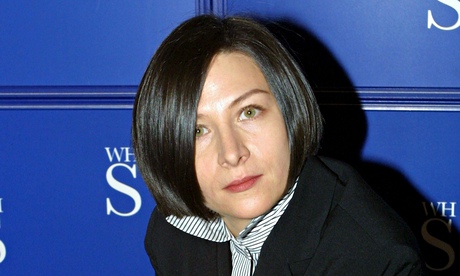
Economists have argued for years that climatic conditions can provoke revolution. If France hadn’t suffered a drought in 1788, and then an unusually cold winter, Marie Antoinette might have spent many happy decades stuffing her face with cake. During this humid summer of 2014, writers, performers and their producers are rebelling. But it’s all taking place through the medium of the strongly worded letter.
First, there was the producer David Johnson’s furious letter to the Ambassador Theatre Group (ATG), which has antagonised performers and audience members alike with what Johnson describes as its “easyJet/Ryanair mentality”. Happy to charge punters up to £7 in booking fees – because which of us isn’t thrilled to pay someone for the privilege of paying them some more? – ATG was nonetheless sniffing around for free tickets at the Edinburgh fringe. As Johnson gloriously replied: “If I had my way, you’d be invoiced for just breathing Edinburgh air.” Most performers in Edinburgh are losing thousands(Edinburgh is the world’s most successful economic experiment, redistributing money from skint comedians to international drinks conglomerates): they simply can’t afford to pay for every “free” ticket given out.
Meanwhile, the book world has taken to the barricades. Nine hundred authors, from Stephen King to Donna Tartt, signed a letter that appeared in the New York Times asking Amazon to “stop harming the livelihood of the authors on whom it has built its business”. They are responding to a dispute between Amazon and the publisher Hachette, which has resulted in Hachette books being unavailable for pre-order on the retailer’s website.
Amazon wants to lower the price of ebooks, which is good news for readers (unless all your favourite authors leap off a cliff in despair at seeing two or three years of their lives retailing for 99p a pop). Hachette argues it is merely trying to protect its writers. And since author incomes have declined sharply since 2005, according to the Authors’ Licensing and Collecting Society, whose most recent figures revealed a dispiriting median income of £11,000, authors could probably do with some protecting.
But Hachette is one of publishing’s five biggest companies, so it’s hard to construe this as a David and Goliath fight: it’s closer to a fight between Godzilla and Mechagodzilla. (Authors, in case you were wondering, are Japan.) One Amazon spokesman hit back this week by suggesting that Hachette “stop using authors as human shields”. It’s surely fair to say that whoever wins this battle, the use of appropriate metaphor is the real loser.
Worse still – at least for authors who care about this sort of thing – Amazon has misrepresented Orwell in its most recent salvo against Hachette. A letter from the Amazon books team to its Kindle readers quotes “the famous author George Orwell”, which is such a dispiriting phrase that I have since had to lie in a darkened room. I can’t decide what’s worse: the bit where a book retailer feels the need to tell readers that Orwell was an author or the part where – out of the many adjectives one could use – it lights upon “famous” as the best.
The letter goes on to quote him on the launch of the paperback by Penguin. According to Amazon, Orwell said that “if publishers had any sense, they would combine against them and suppress them”. Helpfully, Amazon explains: “Yes, George Orwell was suggesting collusion.” And that’s true – so long as you come in halfway through his sentence which reads, in its entirety: “The Penguin books are splendid value for sixpence, so splendid that if other publishers had any sense they would combine against them and suppress them.” It’s a compliment, not a manifesto.
No wonder the quote was taken out of context. Orwell continues: “It is, of course, a great mistake to imagine that cheap books are good for the book trade. Actually it is just the other way around. If you have, for instance, five shillings to spend and the normal price of a book is half a crown, you are quite likely to spend your whole five shillings on two books. But if books are sixpence each you are not going to buy 10 of them, because you don’t want as many as 10.”
Natalie Haynes is author of The Amber Fury

